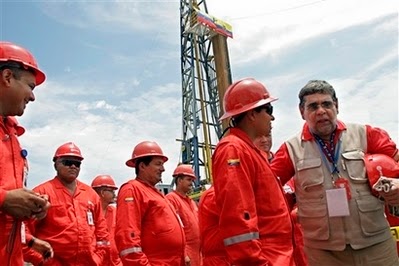 |
| Did 1989 really matter all that much economics-wise? |
An interesting article in Businessweek suggests "not always" as many newly-formed countries are actually falling behind in the global economic league tables:
According to World Bank figures, the low and middle-income countries of Eastern Europe and Central Asia as a region have increased their average GDP per capita 43 percent since 1990. That’s slightly better than Sub-Saharan Africa but worse than South and East Asia, Latin America, or the Middle East and North Africa. For 25 countries in the former Eastern bloc, the per-capita GDPs of 13 (containing most of the region’s population) have expanded more slowly since 1990 than the global average. Of the 165 countries for which the World Bank has data, Russia’s GDP per capita (measured in purchasing power parity) was 33rd highest in 1990 and 42nd highest in 2013. Ukraine dropped from 55th to 93rd. Bulgaria and Latvia dropped one spot, Romania four, and Hungary eight. Poland did manage to climb 16 spots, to 45th richest, but it was very much in the minority. While Albania, Poland, Belarus, and Armenia have more than doubled their income per capita since 1990, six countries in the region are poorer than they were that year, including Ukraine and Georgia.More alarming yet is the notion that these countries actually did better during the Soviet era:
It isn’t just compared with countries in the rest of the world that growth rates across much of the former communist bloc are disappointing—it’s compared with their performance under communism. The Maddison project has historical data for 46 economies covering 1939, 1989, and 2010. That includes Bulgaria, Hungary, the former Yugoslavia and its successor states, and the former USSR and its successor states. In 1939, Bulgaria was the 36th richest of the 46 countries. It climbed to 31st richest by 1989 and reached 30th richest by 2010. The USSR was in 27th place in 1939. It reached 26th place by 1989, before the successor states as a group fell back to 34th by 2010.Having mentioned China and Vietnam, it all brings to mind the common accusation that Western one-size-fits-all prescriptions of deregulation, liberalization and privatization do not necessarily promote growth:
The trouble for such theories is that as a group, post-Communist countries have performed badly—and some of the countries that have adopted the most liberal policies have seen the weakest growth. It’s true that Poland introduced stronger reforms than nearly all other former communist states and has since fared much better in economic performance. But Georgia has also been a darling of the international community for the strength of its reform program; the World Bank’s Doing Business report, which purports to measure the quality of regulation surrounding starting and operating a business, suggests Georgia’s regulatory environment is better than Canada’s, Taiwan’s, or that of the Netherlands. Yet the country (wracked by Russian interventionism) remains poorer than it was at independence.As it so happens, the IMF which made many post-Communist states implement such reforms via conditionalities for liberalization, privatization and deregulation has also just released another report entitled 25 Years of Transition: Post-Communist Europe and the IMF. The IMF is more sanguine on the fate of these states, and unsurprisingly suggests that incomplete reform is to blame for certain cases of underperformance:
The past 25 years have seen a dramatic transformation in Europe’s former communist countries, resulting in their reintegration into the global economy, and, in most cases, major improvements in living standards. But the task of building full market economies has been difficult and protracted. Liberalization of trade and prices came quickly, but institutional reforms in areas such as governance, competition policy, labor markets, privatization and enterprise restructuring often faced opposition from vested interests.For some strange reason, the IMF does not include Georgia in its survey. Another thing it does is compare the performance of post-Communist states solely in terms of their rankings relative to other European states (Western ones included). Is this a fairer comparison to look at pan-European performance instead of on a global basis? Also, they do not compare Soviet-era performance with post-Soviet era performance. For what it's worth, they offer the illustration below and its accompanying description:
The macroeconomic ranking is based on a weighted average of seven macroeconomic indicators (current account balance, inflation, unemployment, government balance and debt, GDP per capita at PPP and real GDP growth). Weights were generated by principal components analysis [factor analysis] of EU14 countries (EU15 excl. Luxembourg) using 2000–14 averages, which yielded results fairly close to equal weighting across the seven variables (with all taking the expected signs). The variables were normalized against 2000-14 EU14 benchmarks.While it may be fair to point out that European countries' economic performance has lagged that of other regions (and therefore excuses the measured performance of certain post-Communist European states), the IMF skirts the issues of comparing post-Communist European states' performance on a global basis and over time--especially the Communist era. Granted, the accuracy of economic record-keeping during Communist times is somewhat suspect, but unless the relevant comparisons are made, there will always be doubters.










